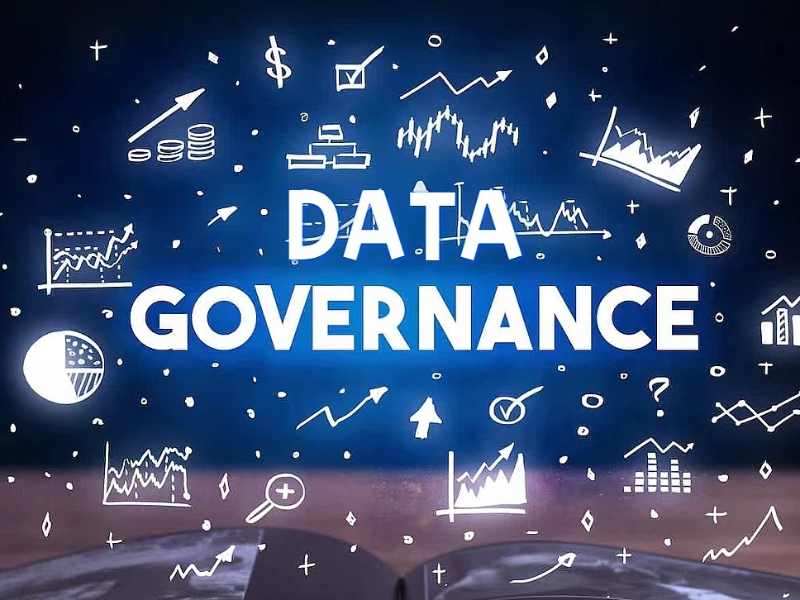- Data governance must align closely with business goals, treating data as a valuable asset and ensuring comprehensive lifecycle management. This integration optimizes resource allocation and enhances data integrity, driving business growth and performance.
- Enterprises must prioritize data quality, compliance, security, standardization, and integration to ensure accurate, secure, and standardized data for informed decision-making and organizational growth.
- Enterprises should establish collaborative governance structures, leverage technology, prioritize continuous improvement, and foster a data-driven culture to optimize data governance practices.
Data has become a core asset and a source of competitive advantage for enterprises. Effective data governance is like the nervous system of an enterprise, ensuring that data flows in an orderly manner, is of reliable quality, and is secure and controllable, thus empowering business decisions, driving innovation, and improving operational efficiency.
Also read: Google Cloud and NetApp introduce enhanced data storage
1. Business-oriented principle
Data governance is not an isolated technical behaviour but should be closely integrated with business. The data governance team should maintain close cooperation with business departments to understand business processes, application scenarios and decision-making needs, and ensure that the data governance strategy is highly compatible with the business strategy.
The goal of data governance is to enhance the value contribution of data to the business, so every governance initiative should be oriented towards improving business performance, optimising customer experience and facilitating strategic decision-making.
2. Data asset-based principle
Treating data as an enterprise asset is a prerequisite for effective governance. This means that enterprises need to establish a data asset management framework, quantify the value of data through data asset catalogues and valuation models, allocate resources appropriately, and ensure that data is properly stored, efficiently utilized, and continuously added value.
The perspective of data asset-based prompts enterprises to look at data governance from the perspective of return on investment, making it a strategic lever to drive business growth.
Also read: Telstra transforms emissions reporting with sustainable data solution
3. Full life cycle management principle
Data governance needs to cover the entire life cycle of data from birth to death, including generation, collection, storage, processing, sharing, use, archiving and destruction.
Each link needs to set up clear governance rules, responsible parties and quality control measures to ensure the compliance, integrity and availability of data in the whole chain. Full lifecycle management ensures that data, no matter what state it is in, can be properly cared for and avoids damage to the overall value due to omissions at one stage.
4. Quality first principle
Data quality directly affects the accuracy and effectiveness of business decisions. Enterprises should build a comprehensive data quality management system, set up strict quality standards, conduct regular assessment and monitoring, and identify and repair data problems promptly.
Adhering to the concepts of prevention and continuous improvement, they should build a brick wall of data quality through systems, processes and technical means, so as to provide solid data support for business decisions.
5. Compliance and security principle
Enterprises need to strictly comply with relevant laws and regulations, industry standards and internal policies to ensure that data processing activities are legal and compliant.
At the same time, a sound data security system should be established, covering data classification, rights management, encryption, backup, recovery and other levels, to effectively prevent data leakage, tampering, loss and other risks, to protect the rights and interests of the data subject, and to safeguard the reputation of the enterprise.

6. Standardisation and integration principle
Inconsistent data standards can seriously hinder the release of data value. Data governance should promote data standardisation, unify data definitions, formats and coding, eliminate redundancy and ambiguity, and enhance data sharing and interoperability. Through data integration projects, break departmental barriers, build a unified enterprise-level data view, and provide a clear and consistent data foundation for data analysis and decision-making.
7. Collaborative governance principle
Enterprises should set up a data governance committee or similar body to clarify the roles and responsibilities of all parties, and ensure that data governance strategies are strongly implemented through effective communication, coordination and monitoring mechanisms. Collaborative governance helps to form data governance synergy, overcome interdepartmental barriers, and maximise the benefits of data governance.
8. Technology enabling principle
Advanced data governance tools and technologies are the keys to improving governance efficiency and accuracy. Enterprises should make full use of data governance platforms, metadata management, data quality management software, AI-assisted analysis and other tools to achieve automation and intelligence of data governance work.
Technical empowerment not only reduces the burden of manpower but also improves the governance effect, making data governance work more accurately and efficiently.
9. Continuous improvement principle
Enterprises should establish a data governance performance evaluation mechanism, review the effectiveness of governance regularly, and adjust governance strategies according to business changes, technological advances and the external environment.
Enterprises should follow the PDCA (plan, do, check, act) cycle to promote the continuous optimisation and innovation of data governance practices and ensure that the data governance system always maintains its vitality and adaptability.
10. Culture-driven principle
Enterprises should actively cultivate a data culture to enhance data literacy and data governance awareness of all staff. Through training, publicity, incentives and other means, create a corporate culture of “speaking with data” and “decision-making with data”, so that every employee understands and actively participates in data governance, and jointly shapes a good data governance ecosystem.

